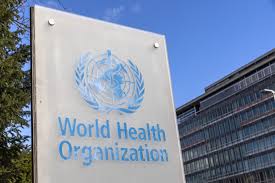
WHO Leaders Urge Global Action Amid Sudan’s Health Crisis
The World Health Organisation’s Director-General, Dr. Tedros Adhanom Ghebreyesus, and WHO Regional Director, Dr. Hanan Balkhy, recently completed a two-day mission to Port Sudan, reaffirming the agency’s commitment to addressing Sudan's escalating health and humanitarian crisis. Their visit underscored an urgent call to the international community to step up efforts to alleviate the suffering of millions of Sudanese people trapped in conflict.
During the mission, Dr. Tedros and Dr. Balkhy engaged with key Sudanese officials, including Lt. Gen. Abdul Fatah Al-Burhan, Chairman of Sudan’s Transitional Sovereignty Council, and Dr. Haitham Mohamed Ibrahim Awadallah, Federal Minister of Health. The discussions highlighted the severe impact of the ongoing conflict on Sudan’s healthcare system and the necessity for unhindered humanitarian access to deliver life-saving aid to those in need.
“The world seems to have forgotten Sudan, and the consequences of ignoring this conflict will ripple across the region,” Dr. Tedros warned during a press conference in Port Sudan. “That’s why we are here—to call for urgent action. We need more resources, more access to humanitarian aid, and more security for health workers and the patients they serve.”
Sudan’s health infrastructure has been shattered by over 500 days of conflict, with more than 100 attacks on healthcare facilities. This violence has caused a mass exodus of health workers, exacerbating an already dire situation and leaving millions of Sudanese without access to critical care.
A visit to a WHO-supported nutrition stabilization center exposed the staggering toll of malnutrition in the country, with 3.6 million children acutely malnourished and 730,000 suffering from severe acute malnutrition. The conflict has compounded food insecurity, making it nearly impossible to deliver essential nutrition and healthcare services to vulnerable populations.
Dr. Tedros and Dr. Balkhy also toured an internally displaced persons (IDP) camp, where they witnessed the harsh realities faced by the residents, including shortages of food, medicine, and clean water. These conditions have heightened the risk of disease outbreaks, as well as gender-based violence, particularly against the estimated four million women and girls at risk due to the ongoing conflict.
Dr. Balkhy emphasized the critical need to protect healthcare infrastructure, citing international humanitarian law. “Sudan’s health system is in ruins. To rebuild it, we need significant investment in both facilities and the health workforce,” she said, warning that without a functioning health system, Sudan’s economic recovery and long-term stability are in jeopardy.
Following their visit, the WHO leaders urged the global community to act swiftly, not only to advance peace but also to provide short- and long-term aid. “Our priority is ensuring that every Sudanese in need receives assistance. This requires sustained peace, investment in health infrastructure, and full access for humanitarian efforts,” Dr. Tedros stressed.
Sudan’s conflict has left 25 million people—over half of the country’s population—in urgent need of humanitarian aid, with 14.7 million requiring immediate life-saving support. However, WHO’s appeal for $2.7 billion in humanitarian funding remains woefully underfunded, with only 24% of the needed funds secured.
The WHO leaders concluded their mission by inaugurating new WHO offices in Port Sudan, a crucial step in expanding the organization’s capacity to reach those affected by the crisis.
“The only way forward is peace,” Dr. Tedros declared, adding, “The world must not look away—this crisis demands our immediate and collective response.”